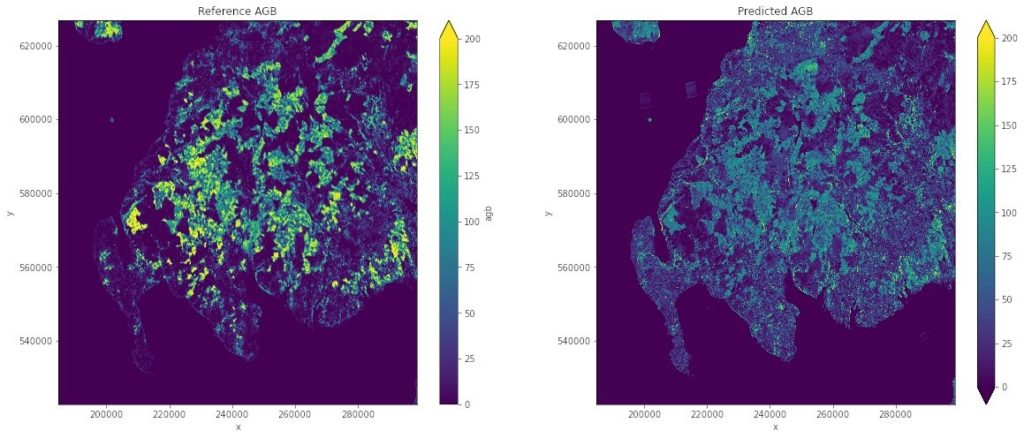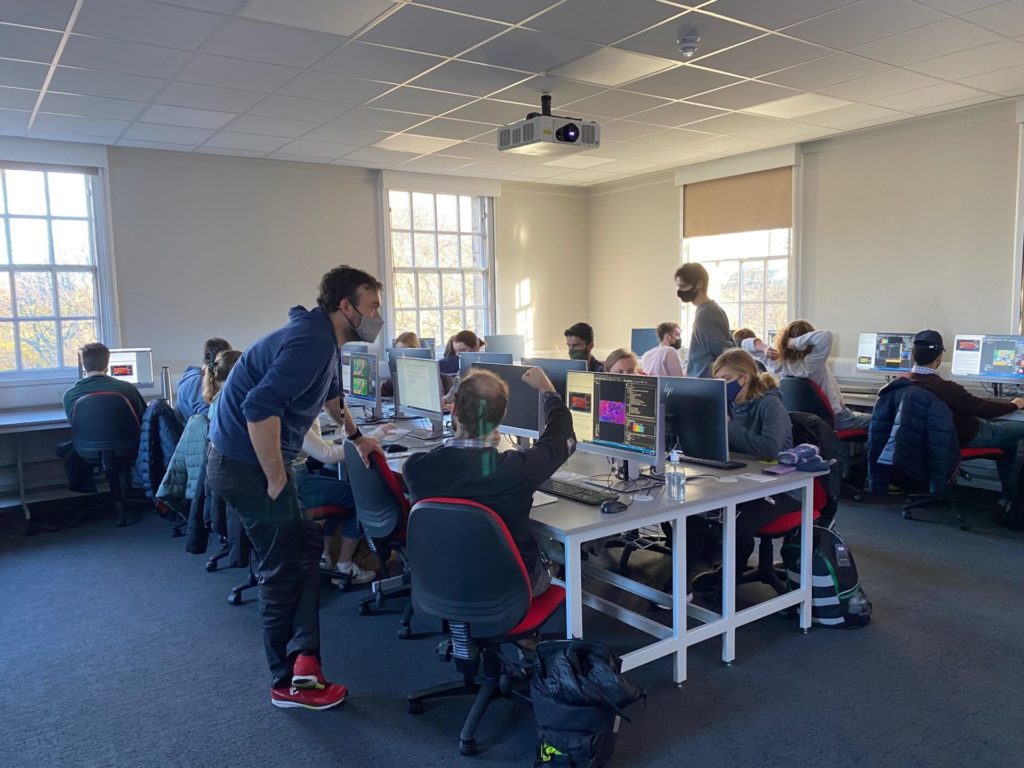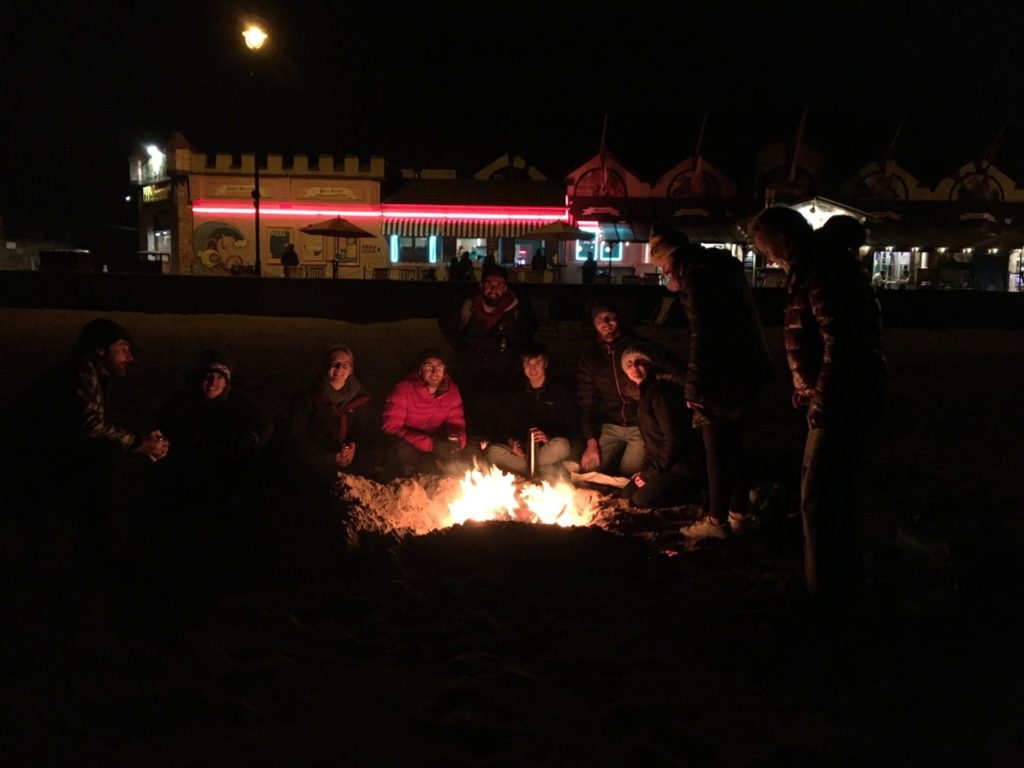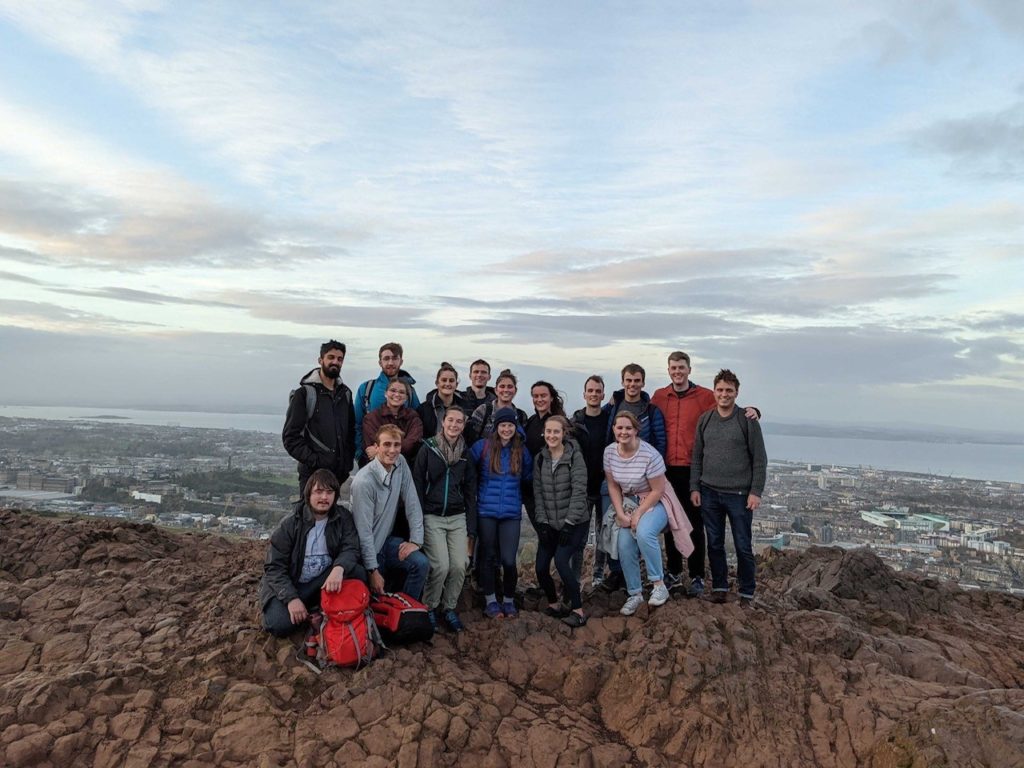
In November 2021 the second cohort of students took part in the first in person block of Earth Observation training at the University of Edinburgh. Due to the pandemic the previous training had take place online so we were really excited to be able to deliver the training in person.
The training took place over four weeks with each week having a different focus and being lead by a different members of staff from the University of Edinburgh.
Week 1: Software Carpentry and Google Earth Engine
Week 2: Statistical Machine Learning, Time series analysis, and Bayesian Filtering
Week 3: Optical Earth Observation
Week 4: Lidar and SAR
Each week is structured around lectures and practical exercises and in the later part of the week the student apply what they have learned to complete a group project which they present to the lecturers the the rest of the group. We also had some keynote talks where those active in Earth Observation discussed their research.

The training went down very well with the students who found it intense but rewarding and learned lots of new skills which they can apply to their research.
‘It was all very interesting, and even when I did not understand things it was very valuable to be exposed to new topics and terminology. I most enjoyed meeting my colleagues, who are supportive and made the learning environment enjoyable, and they really gave time to help and explain concepts and issues as we learn.‘
‘Google Earth Engine will be really useful for my project and was taught very clearly with examples‘
‘The lectures this week were ace, I was very impressed with the teaching! A great use of multiple examples to ensure we understood everything.‘
‘The keynote talk from Gary was very interesting – loved how it brings science into the bigger picture and makes it more applicable to pressing issues in society.‘
‘I think the machine learning practical’s were very interesting and useful as I can probably apply some of that to my project.’
‘I learned a lot about how radar and lidar measurements work and also learned a lot in the keynote lecture about the GEDI mission‘
Iain has a great way of teaching about radar data which really helps to understand the concepts, e.g. all the small experiments he does
‘amazing, loved it, woke up every day thinking I’m so happy to be here, living the dream’
‘Training made my PhD work make so much more sense. More well equipped to do the work now than I was before training’
As the students who are not normally based in Edinburgh were living here for a month it also gave them a chance to get to know the city and get to know some of the cohort 1 SENSE students. There were lots of opportunities to socialise and work together and everyone is looking forward to being together again in spring 2022 for the next block of training in Leeds.


We are incredibly grateful to the staff who contributed to the training: Dr Encarni Medina-Lopez, Dr Victor Elvria, Dr Steven Hancock, Professor Iain Woodhouse, Professor Ed Mitchard, Dr Caroline Nicol, Dr Andrew Gray, Dr Daniel Clewley (from NEODASS), Dr Gary Watmough and Professor Ralph Dubayah (University of Maryland/NASA)
We would also like to thank the terrific demonstrators who also did a fantastic job of supporting the students: Sol White, Peter Hargreaves, Johannes Hansen, Elise Gallois & Joseph Everest



